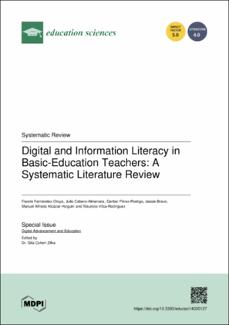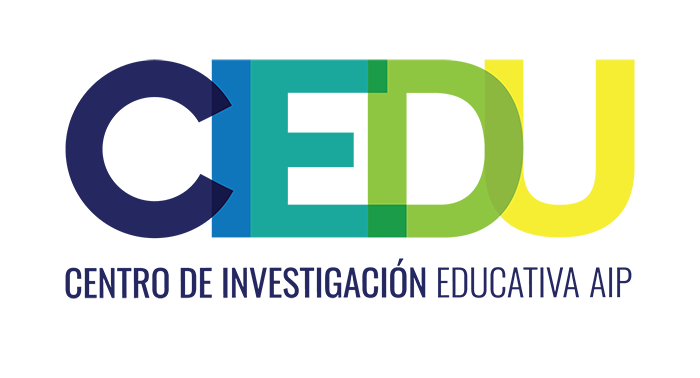Digital And Information Literacy In Basic-education Teachers: A Systematic Literature Review

View/
Date
2024Author
Fernández-Otoya, Fiorela
Cabero-Almenara, Julio
Pérez-Postigo, Gerber
Bravo, Jessie
Alcázar-Holguin, Manuel Alfredo
Vilca-Rodríguez, Mauricio
Metadata
Show full item recordAbstract
Digital transformation has become constant and has forced governments to reevaluate the validity of their educational models; therefore, regarding digital and information literacy, to train teachers to improve new digital skills becomes essential. For these reasons, this research will explore the instruction of teachers in digital and information literacy in basic education; likewise,
there will be an observation of the research’s theoretical-methodological characteristics related to these variables, and, also, we will carry out an analysis of the most pertinent contributions on the impact of new literacies and competencies in the teaching–learning processes in basic education, with the purpose of obtaining a current state overview of its teacher training within the framework of the technologies’ usage linked to teaching. This review was based on the guidelines of the PRISMA protocol, and to select 56 documents, the Scopus and Web of Science (WoS) databases were used. The results show that, in the Scopus database, Spain is the country with the most research on the subject, with 29% of the total, followed by Indonesia, with 6%, and the United States, with 4%, and that the articles focus mainly on the social sciences and computer science. Likewise, in WoS, the country with the most research on the subject is Spain, with 30%, followed by Russia, with 10%, and Norway, with 8%, and the articles mainly revolve around the categories of education and communication.
The research related to this topic uses a quantitative approach in 68%, a qualitative approach in 25% and a mixed approach in 7%. It was shown that there is a direct relationship between digital and information literacy and digital competency. In addition, it is also emphasized that digital and information literacy are continuous and long-term processes. More didactic proposals on digital
skills would be necessary, over government policies and efforts, to achieve a community with a high level of digital and information literacy.
Collections
- Artículos Científicos [321]
Ítems relacionados
Mostrando ítems relacionados por Título, autor o materia.
-
Redesign Of The Digital Literacy Program For Older Adults, Validating Desirable Skills With Generative Artificial Intelligence
Mendoza Lámbiz, Lamed; Gil Herrera, Richard de Jesús (Journal of Information Systems Engineering and Management. Redesign of the Digital Literacy Program for Older Adults, validating Desirable Skills with Generative Artificial Intelligence, 2025)The research described in this article aims to evaluate and redesign the digital literacy program for older adults by validating desirable skills with AI. The same redesign is based on the execution of the ... -
Evaluating Digital Literacy Levels Among Students In Two Private Universities In Panama
López de Ramos, Aura; Casado, Eleonora; González Sevillano, Ulises (South Florida Journal of Development, 2023)Digital literacy has become an indispensable skill in 21st century society because it is necessary for all citizens to function efficiently. The objective of this work was to know the level of digital literacy of undergraduate, ... -
Dependencia De Redes Sociales En Estudiantes Universitarios. Un Enfoque De Género Con Smas-sf
López de Ramos, Aura (Revista Gente Clave Universidad Latina de Panamá, 2024)Este artículo examina el impacto de las redes sociales (RRSS) en estudiantes universitarios, centrándose en la dependencia y considerando las disparidades de género. A través de la aplicación de la escala "Social Media ...
